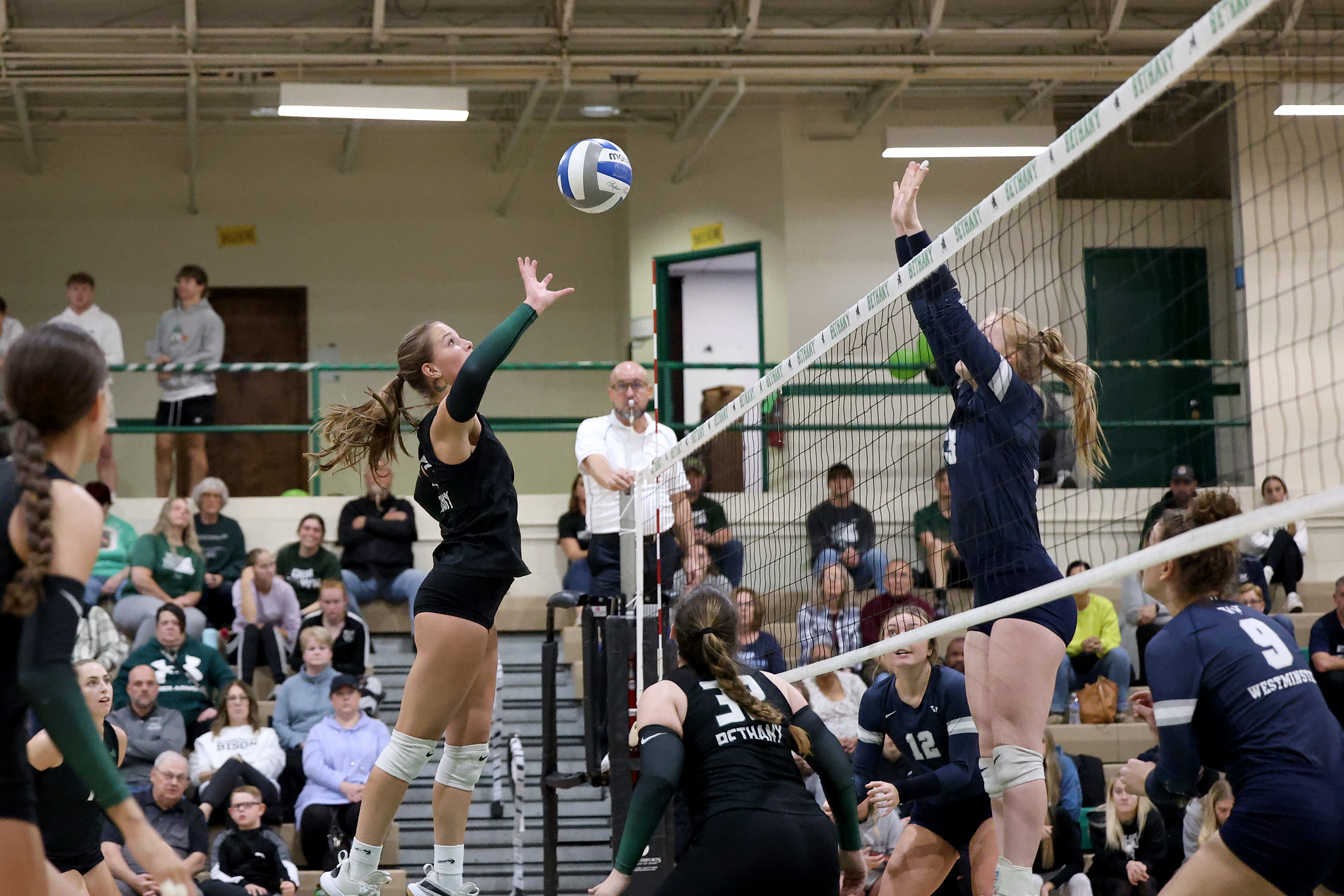
Grace Tice honored with USMC Battles Won Award
Early this year, Grace was diagnosed with Wolff-Parkinson-White syndrome. Her case of WPW includes her having an extra electrical pathway, so her heart beats abnormally fast when she exercises—putting her at a higher risk of having a cardiac episode.
 Can you give me an overview of your story?
Can you give me an overview of your story?
"This January, I started having chest pain, and my mom was very concerned because my family has a history with heart problems. I went to my local doctor, and he wanted me to get an EKG."
"It came back showing I had WPW, Wolff-Parkinson-White syndrome, which means I have an extra electrical pathway in my heart. That causes it to beat faster than normal, especially when exercising, and it puts me at a higher risk of cardiac arrest. At the time, I was a dual-sport athlete training for track and spring season of volleyball. The doctor said he wasn't sure how high the risk was, so he told me to quit all sports. After a few weeks I was cleared for light activity which allowed me to start some training again and even the ability to compete in javelin for track."
"To fix the extra pathway I had to undergo a cardiac ablation, where they go into your heart, burn the tissue of your heart—in my case to cause it to scar, which would eliminate my extra electrical pathway. It was a six-hour long surgery, and the doctor told me after that it wasn't as successful as he'd hoped and that he couldn't get rid of the extra pathway. But he was able to move it from the middle of the heart to the edge, which gave me less risk."
How are things now?
"Since late spring, I have been pretty normal again. Every now and then I get sick, and fevers put me at risk with my heart. I still have to make modifications and, while I am still not a fully healthy athlete, for the most part I can do anything that I want with volleyball and track."
When was it most difficult for you?
"The first week after they told me that I couldn't play sports. I would sit there watching my teammates doing what I love, and not being able to participate was really hard. But I tried to turn that around and used it to fuel me to make myself and my teammates better."
What was your favorite moment?
"That's easy. Ten days post-operation, I competed at a track meet and broke the school record in the javelin and qualified for nationals! That was the best part, because I was never even sure if they would fully cleared me for sports."
"So, when they did, I took that opportunity to show everybody that I can be the athlete I want to be even with this problem. It was so emotionally and mentally straining during the process not knowing if I would ever be as good as I was again, so doing that was proof to myself that I can still get better and be a better athlete."
Who were some of the key people to help you through this challenging time?
"Both my volleyball and my track coaches, and both teams. I love my volleyball teammates; we are the closest-knit family that I have ever had. Our program strives to be the best we can be together, so they helped me so much by always checking in on me, making sure I was okay, and asking how my doctor's appointments were."
"I think the most rewarding part was being able to celebrate with my family, because they did part of the interview process at our home. Just hearing my family talk about that process was emotional because it showed that it wasn't just a trial for me, but for all of us. It's something that we overcame together, and we are a stronger family because of it."
"Going to the award show was so awesome. It was great meeting some of the coolest athletes—everyone was so positive and supportive of each other—and just hearing people who are inspired by my story at that level really just touched me, too."
How has this impacted your view of things?
"I didn't realize that there are so many athletes that have cardiac problems. After everything that happened with me, I kept hearing about other athletes that have cardiac problems, as well. It's crazy that you can go so far through your life without knowing you might be at risk."
"In a world that can be so negative and unkind, Grace is so uplifting and brings light to all the lives she is able to touch. Throughout the whole situation, she radiated positivity. She did not let the fear of the unknown get her down, and she still worked as hard as she could every day." — Jordan Barton, Bethany College Women's Volleyball Coach
The USMC/AVCA Battles Won Award recognizes volleyball players and coaches who are overcoming obstacles on and off the court.
As part of this new award, the AVCA gathered nominations and is proud to present the stories of a dozen individuals in the volleyball community who have faced hardships and come back strong. These profiles will be shared over six Thursdays this fall—one player and one coach per week—of the following people who are redefining courage. Click the links to read their stories.
At the AVCA Convention in Tampa this December, one player and one coach will be presented with the 2023 USMC/AVCA Battles Won Award.


















